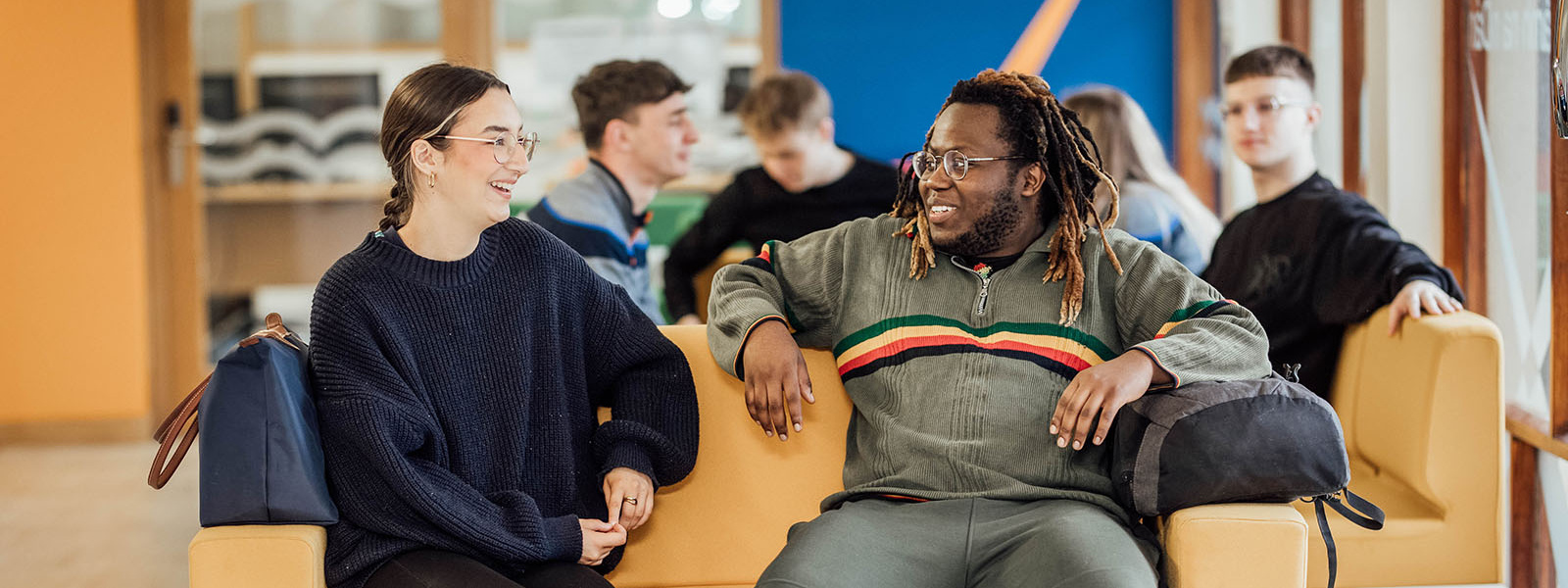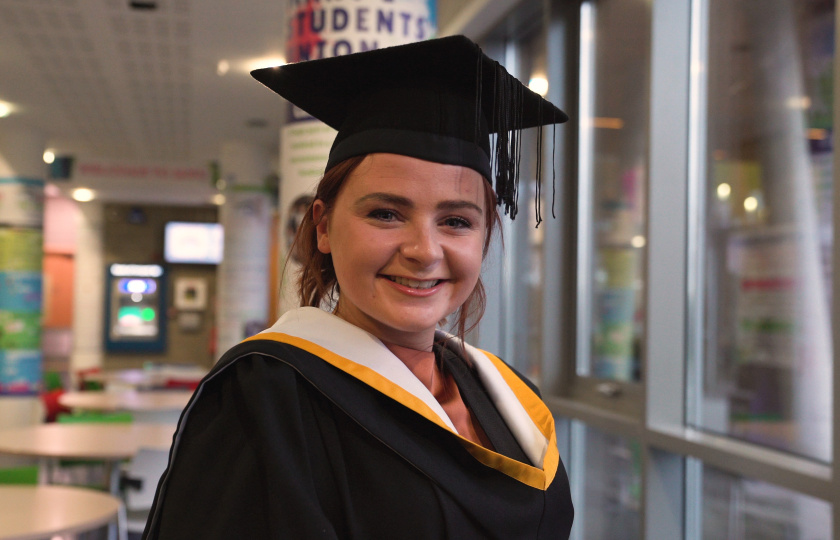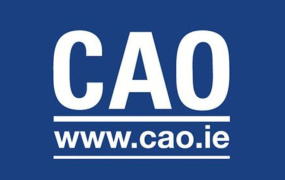Bachelor of Arts (MI002)
CAO Round 1 Pts 2025: 280
Duration: 4 years full-time
Places Offered: 250 approx.
Location: MIC Limerick
Lecture Hours: 10-15 approx.
Tutorial Hours: Variable
Assessment:
Mixed but may include exams, presentations, portfolios, essays, oral exams and other methods.
- Programme Overview
- Programme Content
- Entry Requirements
- Ask a Question
Programme Overview
The Bachelor of Arts is a four-year, full-time, honours degree (Level 8). At MIC the programme is flexible and wide-ranging. Students study four different major subjects in First Year and focus on two of these in Second Year, which they will then continue to study to degree level as joint honours. You can study a combination of subjects from familiar Arts subjects such as English, French, German or History, to newer subjects such as Drama & Theatre Studies, Media & Communication Studies, Psychology or the newest addition to the programme, Business. In Third Year, you will have opportunities to work, to travel, and to study abroad as part of the Off-Campus Programme.

Why Study the Bachelor of Arts at MIC?
Becoming an arts student and graduate is one of the best ways to develop vital skills for your career, for personal growth, and to make the fullest contribution to society. The flexibility of studying an arts degree at MIC means that you can study a combination of familiar arts subjects and try new ones in the first year before deciding on the two subjects you wish to gain your degree in.
Our Arts students develop excellent communication and thinking skills that enable them to engage critically and analytically with the world around them. Subject-specific content is supported by general skills modules, elective modules, and research.
The Bachelor of Arts at MIC is taught by academics from 14 different subject departments, which ensures great diversity. A commonality for all however, is that staff are excellent teachers, renowned subject experts, and compassionate. Assessment methods vary greatly depending on the subject and the year. As BA students, you will be assessed in a variety of coursework, practical tasks, written examinations, and conducting your own research.
Throughout each year, you will develop broad and specific skills to enhance both your personal and professional capacity. In Year 1, you will take Skills for Study and Work module which includes the development of literary, computing, problem-solving, and research skills. In Year 2, you will further broaden your skill base by selecting elective modules. These include Information Technology (IT), Teaching English as a Foreign Language (TEFL). In Year 3, you will have opportunities to develop specific skills through work, or travel, or studying abroad as part of the Off-Campus Programme. You will submit your undergraduate dissertation, demonstrating your research skill and ability to work independently in your fourth and final year.
Career Opportunities
With an MIC Bachelor of Arts degree, you will be a sought-after graduate with a range of knowledge and transferable skills. The list below demonstrates just some of the sectors that our graduates find employment in. Whether you want to pursue further study or just be a highly employable person, the Bachelor of Arts is an excellent choice:
- Academic Administration
- Psychology
- Arts Bodies
- Public Service
- Civil Service
- Publishing
- Film Industry
- Social Services
- Financial Services
- Teaching
- International and EU Organisations
- Television & Radio
- Linguistic & Translation Work
- Tourism
- Marketing & Public Relations
- Urban Planning
- Overseas Aid Work
- Professional Administration/Management
- Banking and Commerce
- Regional and Local Community Development
Off-Campus Programme
In Year 3, you will participate in an off-campus programme. This typically consists of a study abroad placement in Europe, Australia or the USA and/or work placements in a wide variety of settings, in Ireland or abroad. International placements are highly valued and encouraged for the added cultural and linguistic benefits they confer. The off-campus programme provides students with a unique opportunity to discover the world and experience working environments which may also provide future employment for graduates.
While all BA students are encouraged to spend at least one semester in another country, students of French and German are required to complete at least one semester in an environment where the relevant language(s) is/are spoken. This provides an opportunity to experience and understand other cultures, and, in the case of placements in continental Europe, to improve foreign language skills. Students are encouraged to make full use of the consequent opportunities for further travel, fostering adaptability and a global outlook to enable them to succeed in today’s rapidly changing world of work.
Note: Students of Psychology undertake their off-campus placement in the autumn semester only and take modules in the spring semester.
Undergraduate Entrance Scholarships
Each year, Mary Immaculate College awards up to 50 Undergraduate Entrance Scholarships across all undergraduate programmes valued at €2,000 each, on the basis of results obtained in the Irish Leaving Certificate Examination.
Further information about Undergraduate Entrance Scholarships available here.


Ireland’s Climate Change Leadership Awards 2026
MIC has been shortlisted in the 'Education Provider of the Year' category at Ireland’s Climate Change Leadership Awards 2026.
The ICCLA Awards celebrate the achievements of organisations who are leading the charge for sustainability and fighting against climate change.
- Programme Overview
- Programme Content
- Entry Requirements
- Ask a Question







